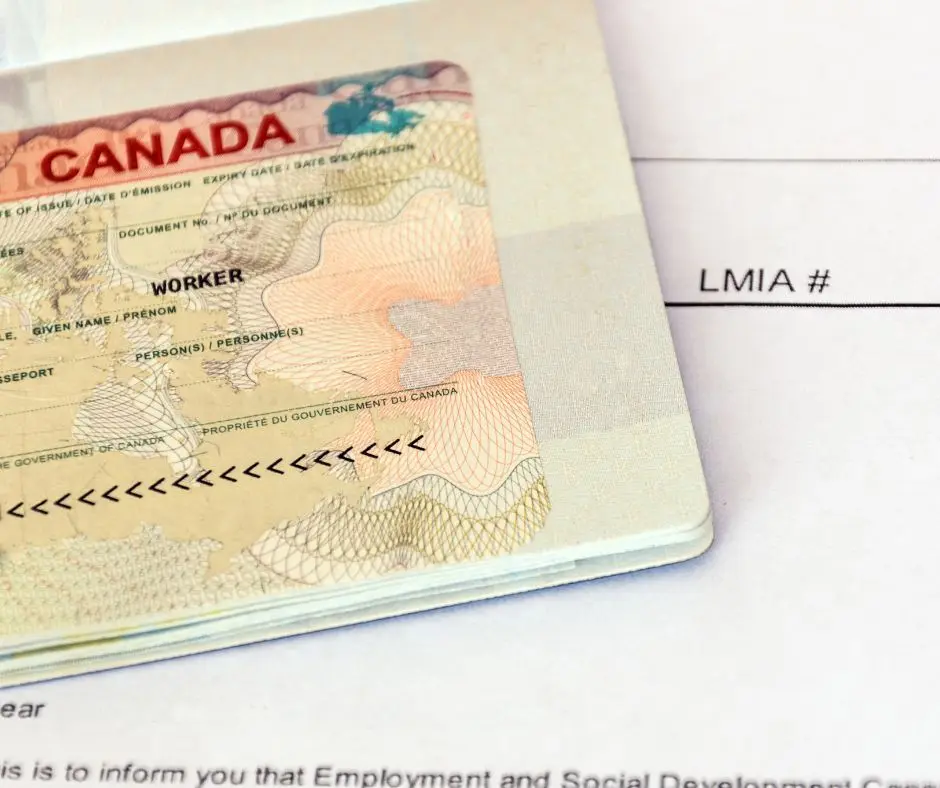Labour Market Impact Assessment (LMIA)
Canada’s Labour Market Impact Assessment (LMIA)
An important first step for many Canadian firms looking to hire overseas workers is the Labour Market Impact Assessment (LMIA). You must understand the LMIA procedure to successfully acquire the talent your company needs and to guarantee compliance with Canadian immigration rules. This guide provides a detailed overview of the LMIA, outlining the steps, requirements, and considerations employers must be aware of when hiring foreign workers in Canada.
What is a Labour Market Impact Assessment (LMIA)?
A Labour Market Impact Assessment (LMIA) is a document that some Canadian employers must obtain before hiring a foreign worker. The primary purpose of the LMIA is to assess the impact that hiring a foreign worker may have on the Canadian labor market. Specifically, it aims to ensure that the employment of a foreign worker will not negatively affect job opportunities for Canadian citizens and permanent residents.
To obtain an LMIA, employers must advertise the position for at least four weeks and potentially interview candidates who are Canadian citizens or permanent residents. solely then, and only if the business can prove that those interviewees did not fulfill the job description, may the business be given the green light to hire a foreign worker. The worker must then apply for a Canadian work permit, supported by the LMIA, before beginning work in Canada.
LMIA applications are detailed and require lots of documentation and statistical tabulation. Examples include a numerical breakdown of the number of Canadian applicants for the position, the number of offers of employment made, and the number of unqualified applicants. Employers must provide a written description of why each un-hired Canadian was not qualified for the job. Not all work permit types require an LMIA to be issued; work permit streams that are LMIA-exempt come under the International Mobility Program.
Reminder: This page is refer to the LMIA process under the Temporary Foreign Worker Program (TFWP). To learn how the LMIA process works in confluence with the Express Entry immigration selection system.
Please, note that Quebec has some distinct processes and policies regarding LMIAs. For full information about Quebec’s LMIA process, refer here.

Why is the LMIA Important?
The LMIA process is designed to protect the Canadian labor market. The government makes sure that foreign workers are only hired when no qualified Canadians are available for the position by requiring employers to get an LMIA. This keeps wages and working conditions equitable across the nation.
The Temporary Foreign Worker Program (TFWP):
The department of Employment and Social Development Canada (ESDC) oversees Canada’s LMIA process. In their analysis, ESDC will consider the following elements of the job offer:
- Is the salary offered to the foreign worker consistent with the average for the occupation in the area the position is located?
- Are the working conditions consistent with labour laws and/or collective bargaining agreements?
- Is there a labour shortage for that occupation in the area the position is located?
- Is there an ongoing labour dispute in the company and/or industry?
- Has the Canadian employer undertaken recruitment efforts in order to find a Canadian to fill the position?
- Will the foreign worker be able to transfer unique skills or expertise to Canadians?
- Will hiring the foreign worker help to create or retain jobs for Canadians?
- Will the foreign worker be the employee of the Canadian employer, whereby the foreign worker is expected to work on a full-time basis at a pre-determined wage?
The TFWP is divided into streams for Higher-skilled workers and Lower-skilled workers. Positions located in skill levels 0, A, and B of the National Occupational Classification (NOC) system are placed in the Higher-skilled category. Positions located in skills levels C and D are placed in the Lower-skilled category.
Find out if you are eligible to get in Canada →
Both streams contain two further sub-streams:
1) The Stream for Higher-Skilled Occupations — High-Wage Workers
2) The Stream for Higher-Skilled Occupations — Low-Wage Workers
3) The Stream for Lower-Skilled Occupations — High-Wage Workers
4) The Stream for Lower-Skilled Occupations — Low-Wage Workers
Positions where the prevailing wage rate, as set by ESDC, is below the provincial/territorial median wage will be considered low-wage. Those positions where the prevailing wage is at or above the provincial/territorial median wage will be considered high-wage.

New LMIA rules introduced on September 26, 2024
As of September 26, new rules were introduced for the temporary foreign workers as follows:
- Areas with an unemployment rate of more than 6%, LMIAs will no longer be granted.
- The past limit for hiring foreign workers was 20%, now the limit is reduced to 10% only.
- Some temporary foreign workers hired for low-wage jobs are now allowed to stay for a shorter period of 1 year only instead of 2 years as per previous rules.
The LMIA Application Process
Depending on whether the employed foreign worker is considered a high-wage or low-wage worker, different procedures apply for the LMIA application. This is a summary of the information that employers should have:
High-Wage Workers
For high-wage positions (those with salaries at or above the median wage in the province or territory), employers must submit a transition plan along with their LMIA application. This plan outlines how the employer intends to reduce their reliance on temporary foreign workers over time, such as by investing in skills training for Canadian workers or by helping the foreign worker transition to permanent residency in Canada.
Low-Wage Workers
Companies that hire low-wage employees are subject to different regulations. These include demonstrating that the job was marketed to Canadian workers and guaranteeing that the foreign worker’s pay is less than the local median wage. Furthermore, a company’s ability to hire low-wage temporary foreign workers is limited, and certain low-wage jobs might not be qualified for LMIA processing.
Median Hourly Wages by Province/Territory
according to Canada.ca website.
Province/territory Median hourly wages as of April 2, 2024 Median hourly wages before April 2, 2024 Alberta $29.50 $28.85 British Columbia $28.85 $27.50 Manitoba $25.00 $23.94 New Brunswick $24.04 $23.00 Newfoundland and Labrador $26.00 $25.00 Northwest Territories $39.24 $38.00 Nova Scotia $24.00 $22.97 Nunavut $35.00 $35.90 Ontario $28.39 $27.00 Prince Edward Island $24.00 $22.50 Quebec $27.47 $26.00 Saskatchewan $27.00 $26.22 Yukon $36.00 $35.00
What is a positive Labour Market Impact Assessment LMIA?
Employers who receive a positive LMIA and hire a foreign worker may be subject to inspections to ensure compliance with Canadian labor laws. These inspections may involve checking that the worker is receiving the agreed-upon wages and benefits, and that the employer is following the terms outlined in the LMIA application.
Find out if you are eligible to get in Canada →
Who is eligible for LMIA in Canada?
Employers and potential foreign workers must fulfill a number of requirements in order to be eligible for a Labour Market Impact Assessment (LMIA) in Canada. The following summarizes who in Canada is qualified for an LMIA:
Employer Qualifications for LMIA
Canadian employers need to be able to apply for an LMIA if they are:
- Demonstrate a Genuine Need: Employers must show that they have a legitimate need to hire a foreign worker because there are no qualified Canadian citizens or permanent residents available to fill the position.
- Adhere to Recruitment Requirements: Employers must advertise the job vacancy in the Canadian labor market, typically for at least four weeks, and use multiple recruitment methods to target Canadian workers before applying for an LMIA.
- Offer Fair Wages and Working Conditions: The employer must offer wages and benefits that meet or exceed the median wage in the region for the position and ensure that the working conditions are consistent with Canadian labor standards.
- Cap on Low-Wage Workers: For employers seeking to hire low-wage workers, there are limits on the proportion of temporary foreign workers they can employ relative to their total workforce. This is generally capped at 10% for businesses with 10 or more employees.
- Compliance with Legal and Regulatory Obligations: Employers must not have any outstanding compliance issues, such as non-compliance with employment standards, occupational health and safety regulations, or previous LMIA conditions.
- Submit a Transition Plan for High-Wage Positions: Employers hiring for high-wage positions must submit a transition plan outlining how they will reduce their reliance on temporary foreign workers over time, such as by training Canadian workers or helping the foreign worker transition to permanent residency.
Foreign Worker Eligibility
In order for foreign employees to qualify for an LMIA:
- Meet Job Requirements: The foreign worker must have the necessary skills, experience, and qualifications for the position offered by the Canadian employer.
- Work Permit Application: After the employer obtains a positive LMIA, the foreign worker must apply for a work permit. The LMIA is a critical part of this application, as it demonstrates the need for a foreign worker and supports the issuance of a work permit.
- Eligibility for Specific LMIA Categories: Foreign workers may be eligible under different LMIA categories, such as high-wage, low-wage, or those in high-demand occupations, depending on the specifics of the job offer.
Exceptions and Exemptions for LMIA
Certain foreign employees may be exempted from the LMIA requirement in certain situations, such as:
- International Agreements: Employees who are protected by accords such as the Canada-United States-Mexico Agreement (CUSMA) might not require an LMIA.
- Intra-Company Transfers ICT: Employees being transferred within a company from a foreign branch to a Canadian branch may not require an LMIA.
- Reciprocal work: Employees who take part in programmes like International Experience Canada (IEC), which provide chances for reciprocal work, may also be excluded.
- Quebec-Specific Rules: In Quebec, certain workers with a Quebec Selection Certificate (CSQ) may be exempt from the LMIA requirement.
Quebec-Specific LMIA Exemptions
The province of Quebec has specific exemptions and variations to the LMIA process. For instance, holders of a Certificate selection in Quebec /Certificat de sélection du Québec (CSQ) (CSQ) can work in Quebec without their employer needing to secure an LMIA. Additionally, certain high-demand occupations in Quebec are subject to a facilitated LMIA process, which does not require proof of recruitment efforts.
From September 3, Quebec will cease the issuance of LMIAs in Montréal for positions that pay less than CAD 27.47 per hour, that is, the median hourly wage in the province.
